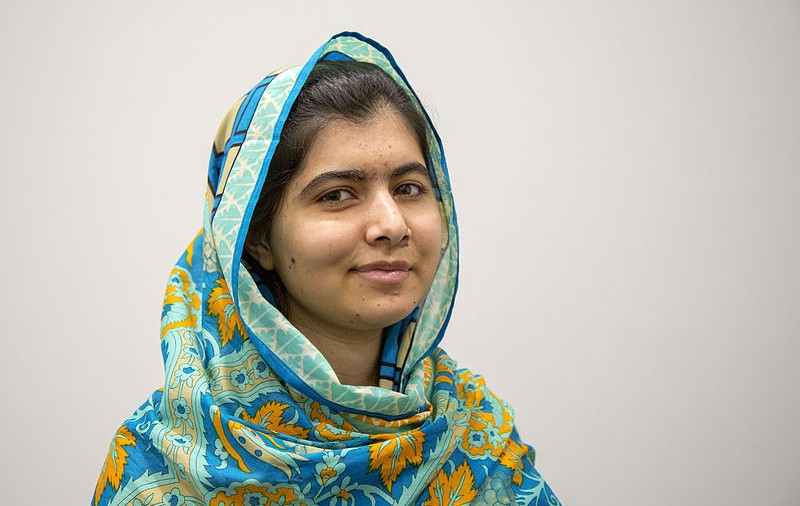Looking back at the past few years of Malala Yousafzai’s life, it’s difficult to not be intimidated yet in complete awe of all she has achieved. Let’s be honest, how many of us had our lives even partially together when we were 16? By that age, Malala had already blogged for the BBC, won the International Children’s Peace Prize, and delivered a speech to the United Nations, all with the aim of highlighting the severe problems with education that leaves around 65 million girls of primary and secondary school age out of education across the world.
It’s been just over three years since Malala was shot by the Taliban as she travelled home from school, but her story of activism doesn’t begin there. In response to the Taliban’s attacks on girls’ schools in her hometown of Pakistan’s Swat Valley, Malala gave a speech in 2008 titled “How dare the Taliban take away my basic right to education?” The following year, under the pseudonym of Gul Makai, she began blogging for BBC Urdu, highlighting the extent of the problems caused by the Taliban in her hometown. However, her real name was revealed later that year.
With her identity out in the open, and an increasing amount of media attention surrounding her blog and work in activism, Malala unfortunately became a target of the Taliban, resulting in her being shot on her bus ride home on 9th October 2012. After receiving urgent medical care in Peshawar, Malala was transferred to the Queen Elizabeth Hospital in Birmingham where she remained until January 2013.
Despite the terrifying ordeal that she had to endure, as well as the fact that the Taliban still to this day consider her a target, it’s had no effect on Malala’s desire to campaign for better education. She spent her 16th birthday delivering a speech to the UN, stating “one child, one teacher, one pen and one book can change the world”. Her 18th birthday saw her open a school for Syrian refugees in Lebanon. Her passionate plea to world leaders to alter their stance on education and women’s rights is one that resonates so hard. The fact that so many young girls are denied access to an education is such an injustice in itself, but the fact that it took the shooting of a 15 year old girl to encourage a serious debate about the issue is something that we should be ashamed of.
Now with a Nobel Peace Prize to her name, Malala continues to be a key voice on the topic of youth education. Girls from all across the world, whether they have access to an education or not, can look up to, and stand alongside Malala in her fight. Her undeniable enthusiasm and desire to secure a better future for girls who are currently in the same situation as she was several years ago is an inspiration to all, and world leaders and politicians alike could, and should, learn a lot from her.
Lauren Davies

